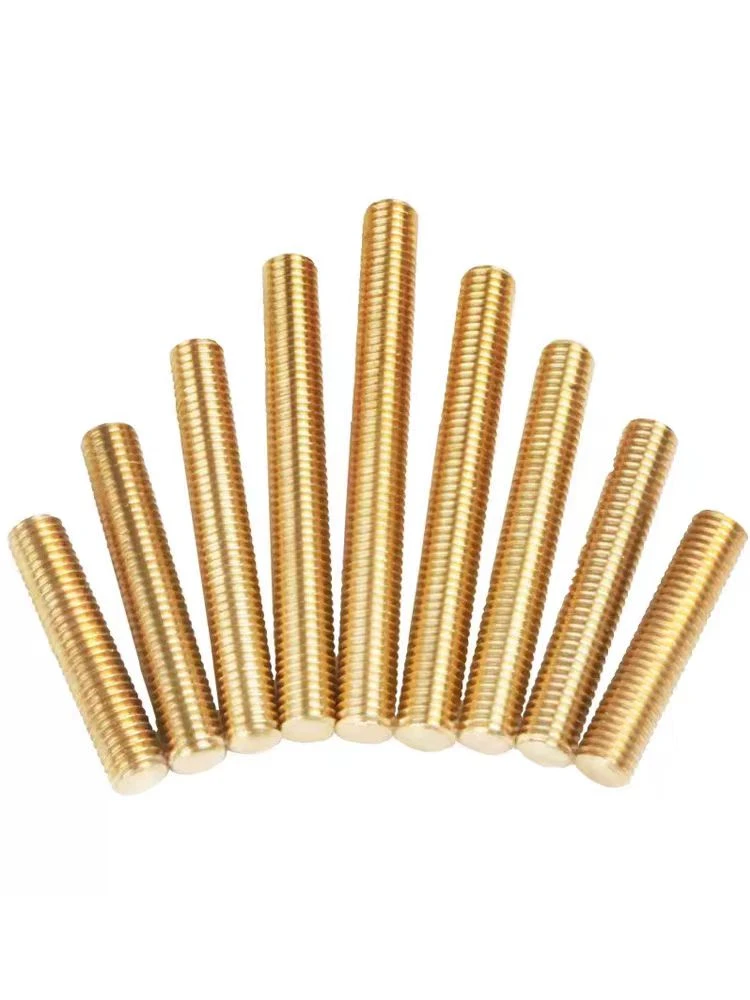

'plain washer and spring washer - a fastener'
Dec . 27, 2024 06:27 Back to list
'plain washer and spring washer - a fastener'
Understanding Plain Washers and Spring Washers A Fastener Primer
In the world of engineering and construction, the importance of fasteners cannot be overstated. Fasteners form the backbone of mechanical assemblies, providing the necessary support and stability to various components. Among the myriad fastener options available, plain washers and spring washers are two essential types that serve critical but distinct roles in fastening applications. Understanding the characteristics, applications, and advantages of these two types of washers can significantly enhance the integrity and longevity of an assemblage.
What are Washers?
Washers are flat discs with a hole in the center, typically made from materials such as metal, plastic, or rubber. They are used in conjunction with fasteners like bolts and screws to distribute loads, prevent loosening, and protect surfaces from damage. Washers come in varying shapes, sizes, and types, each tailored to suit specific engineering needs.
Plain Washers The Basics
Plain washers, also known as flat washers, are simple circular discs that have a hole in the center. Their primary function is to provide a smooth, flat surface for the load-bearing member of a bolt or screw to distribute the load exerted by fastening devices. This helps to prevent damage to the surface of the material being fastened and reduces the likelihood of galvanic corrosion when a bolt or screw comes into contact with dissimilar materials.
Applications of Plain Washers
Plain washers are used in a broad range of applications, including
1. Structural Engineering They are commonly used in beams and columns to enhance load distribution. 2. Automotive Industry In vehicle assembly, plain washers help secure various components while preventing any unwanted wear or tear on the surfaces.
3. Electronics Washers are often employed to protect circuit boards and other electrical components from mechanical stress.
Advantages of Plain Washers
- Load Distribution They effectively distribute the load of fasteners over a larger surface area, which minimizes the risk of damage. - Surface Protection Their flat surface minimizes scratches, dents, or other forms of damage to the substrate material.
Spring Washers The Dynamics
'plain washer and spring washer - a fastener'

Unlike plain washers, spring washers are designed with a bent or curved shape, providing flexibility and elasticity. These washers are primarily used to maintain tension and secure fastened components against loosening due to vibration or dynamic loads. By exerting a continuous force against the fastener, spring washers ensure that joints remain tight over time.
Types of Spring Washers
1. Helical Spring Washers These washers have a coil design and are ideal for applications requiring significant force. 2. Bellville Washers These conical washers provide higher thrust capacities and are often used in heavy-duty applications.
Applications of Spring Washers
Spring washers find their place in various sectors, including
1. Machinery and Equipment They are critical in machinery where vibration is prevalent, helping maintain the integrity of assemblies.
2. Aerospace Used extensively in aircraft, spring washers help ensure that components remain secure even under extreme conditions.
3. Construction They provide additional resilience in construction applications, where fluctuating loads may loosen fasteners over time.
Advantages of Spring Washers
- Vibration Resistance Their design makes them exceptional at preventing loosening caused by vibrations.
- Load Adjustment Spring washers can accommodate variances in load, enhancing the durability of the joint.
Conclusion
In summary, both plain washers and spring washers play crucial roles in ensuring the stability and reliability of mechanical assemblies. Plain washers excel in providing load distribution and surface protection, while spring washers shine in applications requiring vibration resistance and dynamic support. When selecting the appropriate washer for a specific application, it is essential to consider factors such as load requirements, environmental conditions, and the nature of the materials involved. By understanding these essential fasteners, engineers and builders can ensure that their assemblies are not only functional but also long-lasting and secure. Thus, incorporating the right type of washer into an assembly can be the key to achieving operational excellence and safety in any engineering project.
Latest news
-
Hot Dip Galvanized Bolts-About LongZe|High Strength, Corrosion Resistance
NewsJul.30,2025
-
High-Strength Hot Dip Galvanized Bolts - Hebei Longze | Corrosion Resistance, Customization
NewsJul.30,2025
-
Hot Dip Galvanized Bolts-Hebei Longze|Corrosion Resistance&High Strength
NewsJul.30,2025
-
High-Strength Hot-Dip Galvanized Bolts-Hebei Longze|Corrosion Resistance&High Strength
NewsJul.30,2025
-
Hot Dip Galvanized Bolts-Hebei Longze|Corrosion Resistance&High Strength
NewsJul.30,2025
-
Hot Dip Galvanized Bolts - Hebei Longze | Corrosion Resistance, High Strength
NewsJul.30,2025

